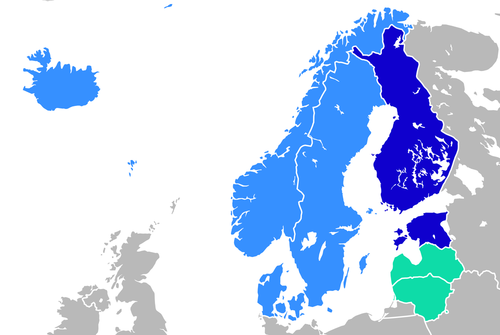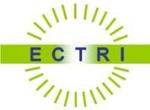Although the regional economic integration between the Nordic and Baltic countries is well known, few studies analyze the relationship in detail and systematically. In the LIFT project, researchers from Institute of Transport Economics and partners will investigate how and whether the regional economic integration has contributed to lifting the regional economies. Important economic interaction between the countries in Northern Europe include labor market integration and migration, knowledge transfer and knowledge development, foreign direct investment and capital mobility, and trade in goods and services.
Closer ties after the fall of the Soviet Union and EU membership
Since the fall of the Soviet Union in the early 1990s, the economies of the Nordic and Baltic countries have become increasingly more integrated. In the following years, many Nordic companies established business contacts and subsidiaries in the Baltics, and contributed to increased trade, foreign direct investment and knowledge transfers. When the Baltic countries became members of the EU in 2004 and thus a part of the internal European labor market, the regional relations in Northern Europe became strengthened even further. This contributed to increased migration and cooperation between the Nordic and Baltic countries.
The regional integration between the Nordics and the Baltics constitutes the starting point of the LIFT project. The project is funded by the Lithuanian EEC-call for research funding for the Baltic countries. The acronym LIFT summarizes the project's four research-related work packages; Labor market integration and migration, Innovation spillovers and technology transfers, Foreign direct investments and capital mobility, and Trade of commodities and services.
What has the Nordic-Baltic integration led to?
The parent research hypothesis of the project is that the Nordic-Baltic integration has helped lifting the regional economies in many contexts. The main responsibility of the Institute of Transport Economics is the working package on foreign direct investments and capital mobility. Yet, the institute will also be involved in the other parts of the projects.
In 2016, Norwegian foreign direct investment in the Baltics reached 2.5 billion Euros, according to Statistics Norway. Nordic direct investment and subsidies can induce positive impulses in the Baltic economies on productivity, labor market benefits, social welfare and public services, as well as distributional effects. The researchers intend to benchmark the performance of transnational companies with the performance of otherwise resembling companies with domestic owners or owners of other nationalities. The studies will deal with both greenfield investments and acquisitions.
As the topic of foreign direct investments and mobility is closely related to the other economic interaction surfaces between the Nordics and the Baltics, they will occasionally be assessed in the same studies.
Researchers from Institute of Transport Economics will study how trade and foreign direct investment in Northern Europe affect productivity and wage compression in the Northern European countries. Furthermore, Institute of Transport Economics plans to investigate how various forms of economic interaction with the Nordic countries affect tourism activities and the quality of public services in the Baltic countries.
The research consortium is led by Vilnius Gediminas Technical University of Lithuania. Other research partners are the University of Tartu in Estonia, and the University of Latvia and the Baltic International Centre for Economic Policy Studies in Latvia. In addition, the project has five stakeholder partners - Export Credit Norway, the Nordic Council, the Norwegian Chamber of Commerce in Latvia, the Norwegian-Estonian Chamber of Commerce and the Norwegian-Lithuanian Chamber of Commerce.






